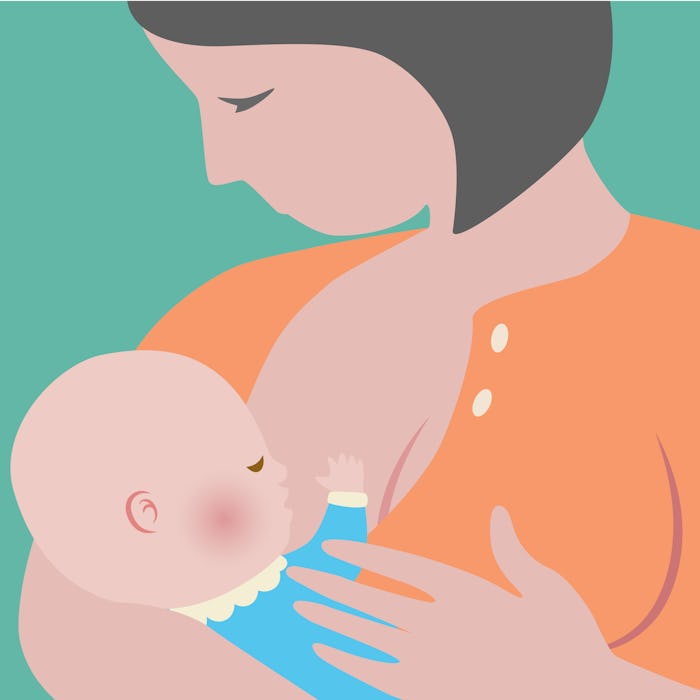Life

Why Does Mastitis Happen? There Could Be A Few Reasons
Childbirth does crazy things to your body (understatement of the year, I know.) And whether or not you choose to breastfeed, your body will still make milk as a response to giving birth. Mastitis is a common and unfortunate side effect of your milk coming in that many postpartum moms experience, soon after birth or even further down the road. But why does mastitis happen? There isn't one straight forward answer, but it's never an ideal situation.
According to Baby Center, mastitis is the painful swelling of your breasts that happens when they're too full, a duct is blocked, or there is an infection in your breast. More often than not, it will impact on breast and not the other. If you're suffering from from mastitis, the affected breast will be painfully full (or engorged,) hot and tender to the touch, and you may even experience flu-like symptoms such as a high fever, according to La Leche League International.
Though there are several reasons your breast may become engorged, Mayo Clinic lists improper latch (which causes your baby to get less milk out), a blocked milk duct, and bacterial infection as the main causes of mastitis.
Although sometimes there isn't a lot you can do to prevent it, except work on your baby's latch with the help of a lactation expert, in some cases, you can. The same article from The Mayo Clinic suggested trying multiple nursing positions, being sure to empty the breast at each feeding, and wearing bras and clothing that allow for optimal circulation as a few of the simple lifestyle tweaks you can make to prevent mastitis. Being sure to get enough rest and proper nutrition, drinking lots of fluids, and nursing your baby as often as possible will decrease your chances even further.
If you do develop this painful infection, you'll generally be able to fight it with at-home remedies mentioned above. However, if you have a history of mastitis, your fever is rising or not breaking, or you have cracked nipples (which allows infection to enter more easily), Dr. Sears suggested seeing your doctor for an antibiotic.